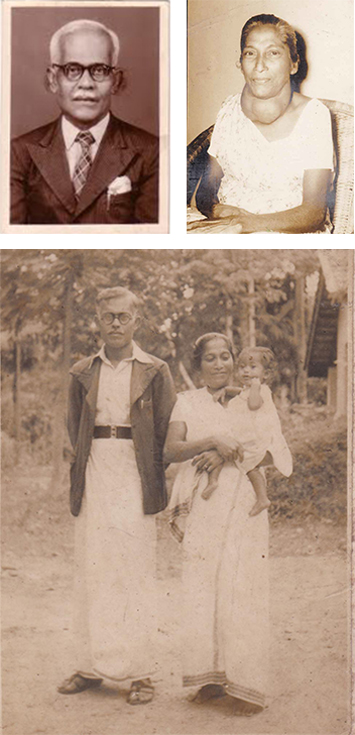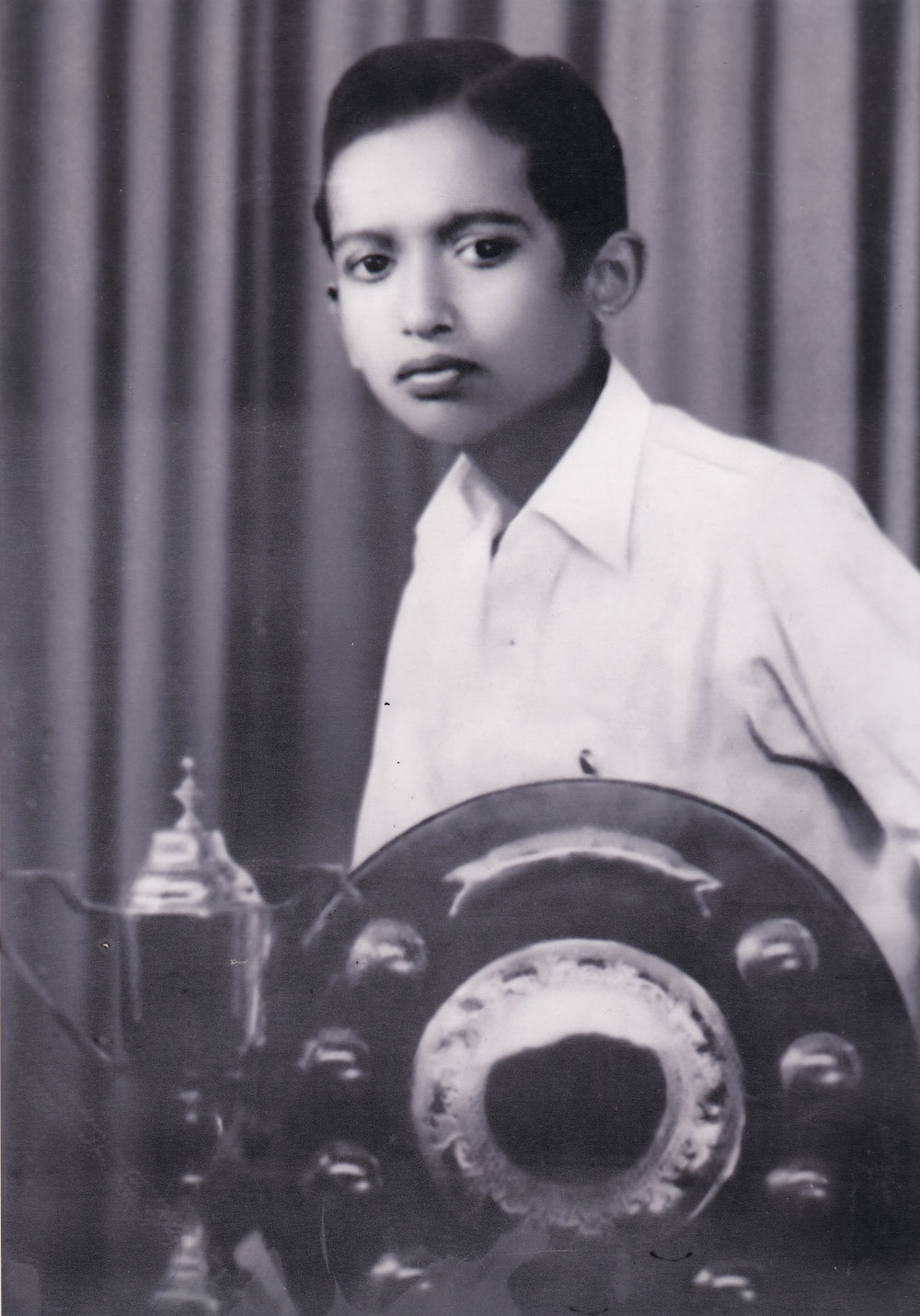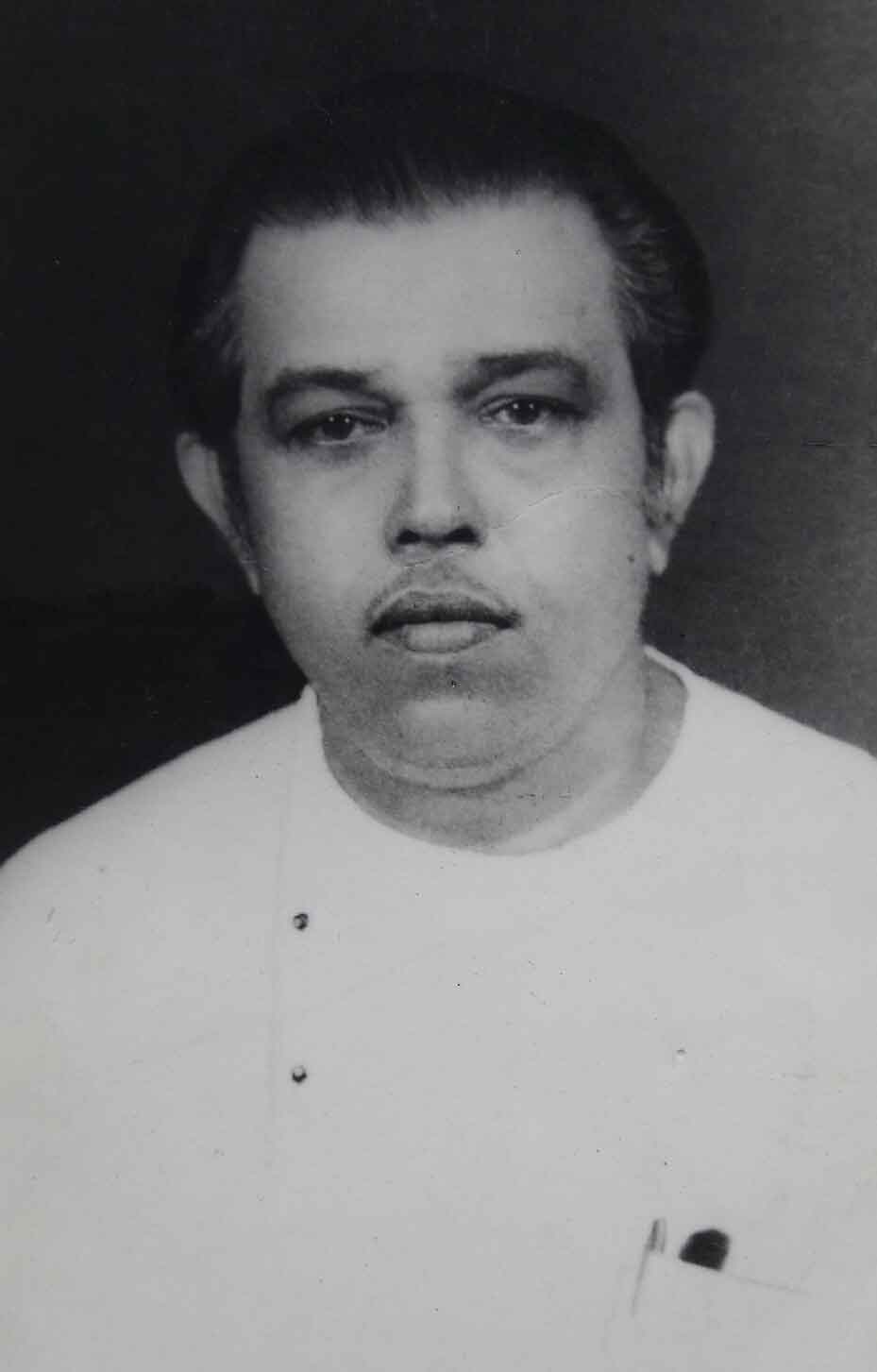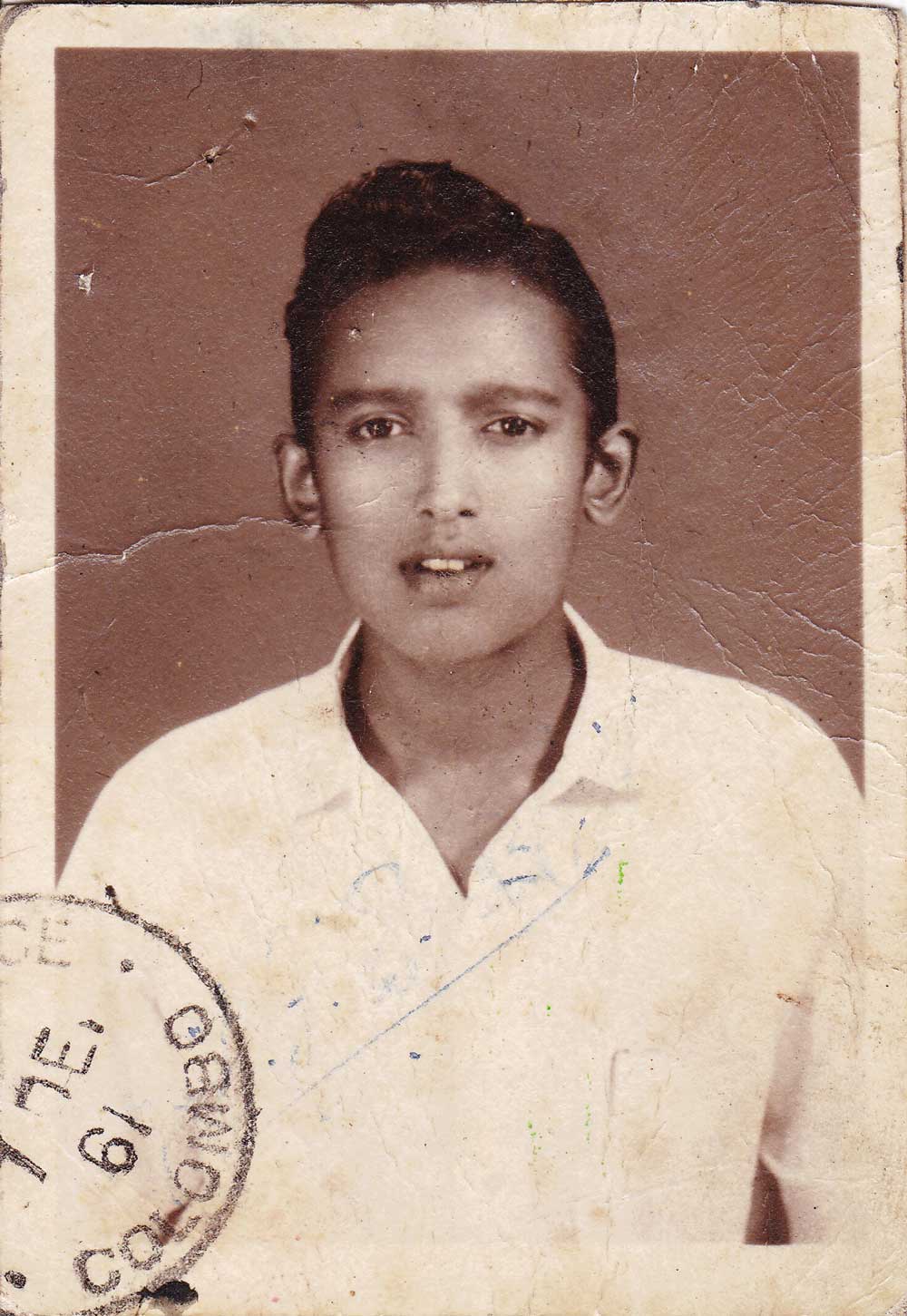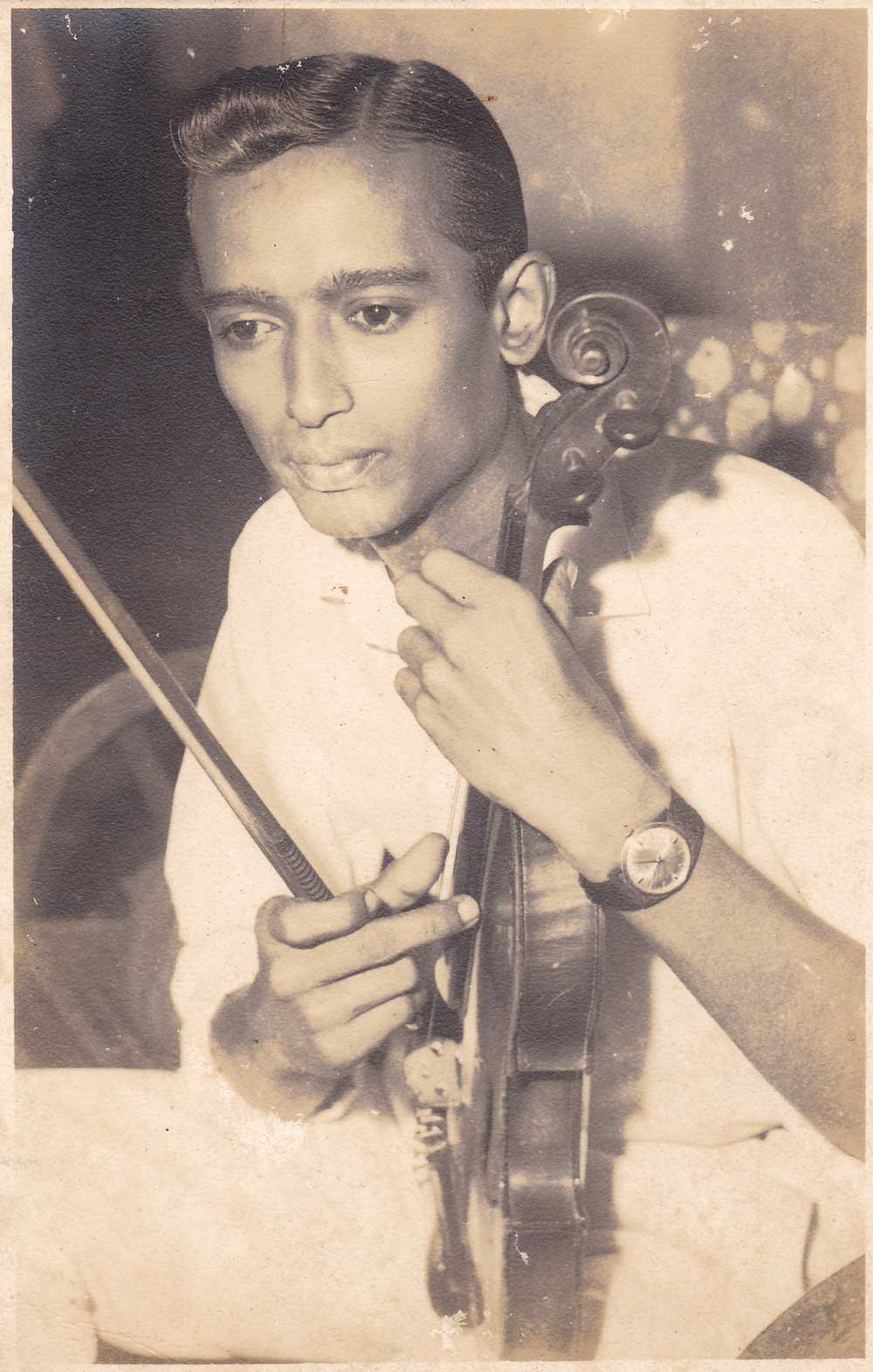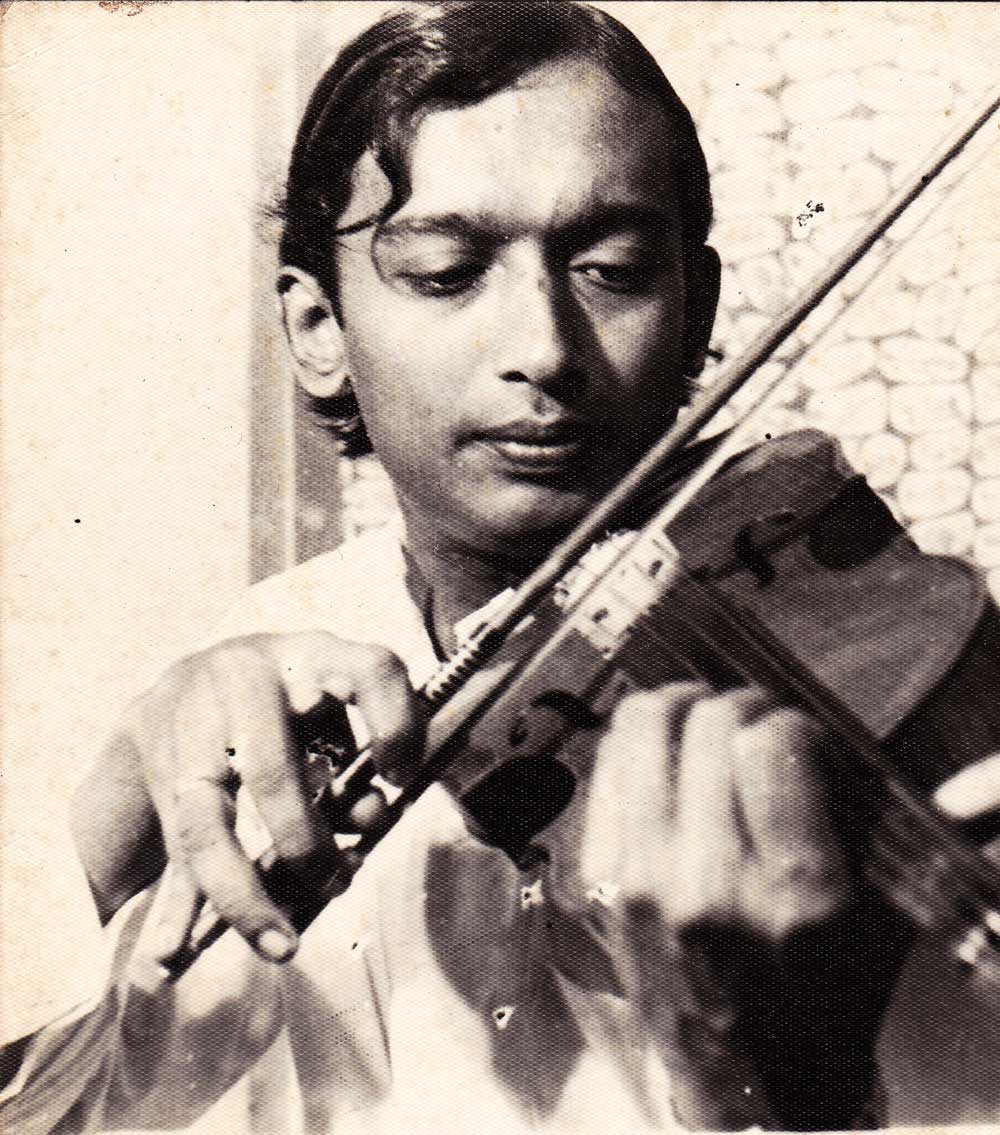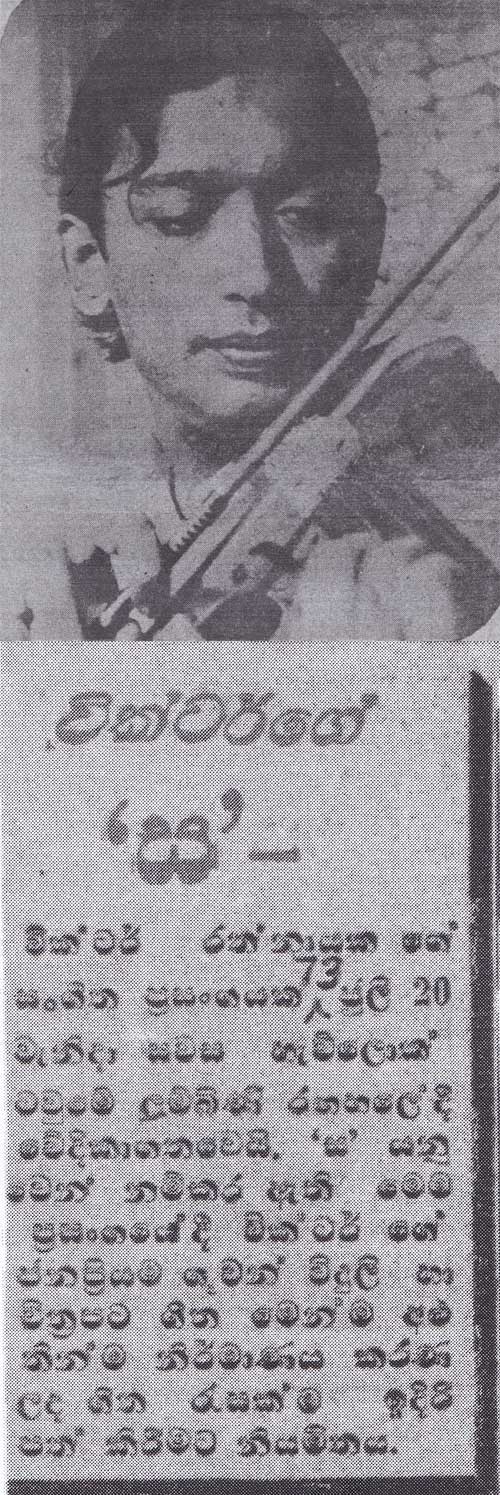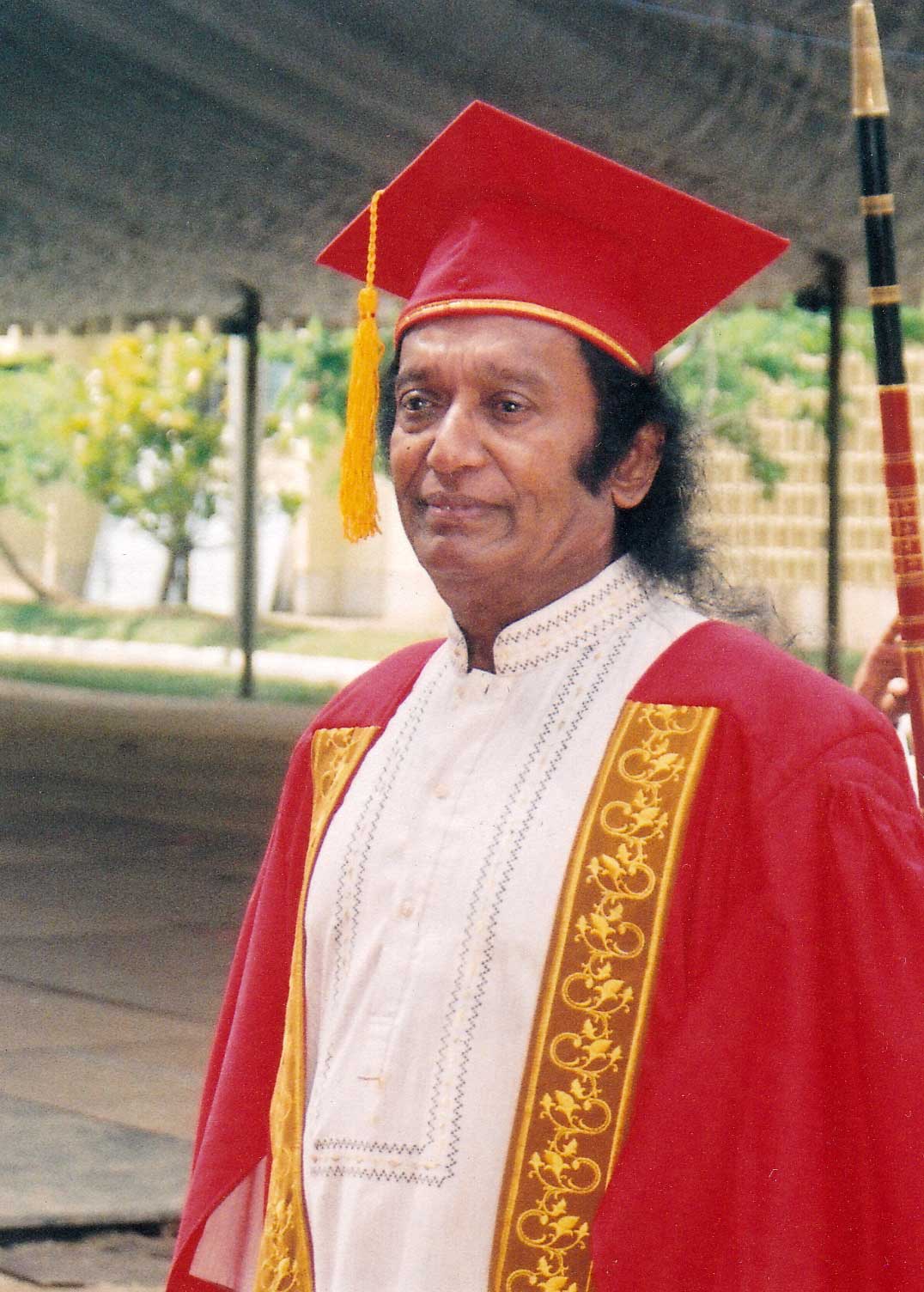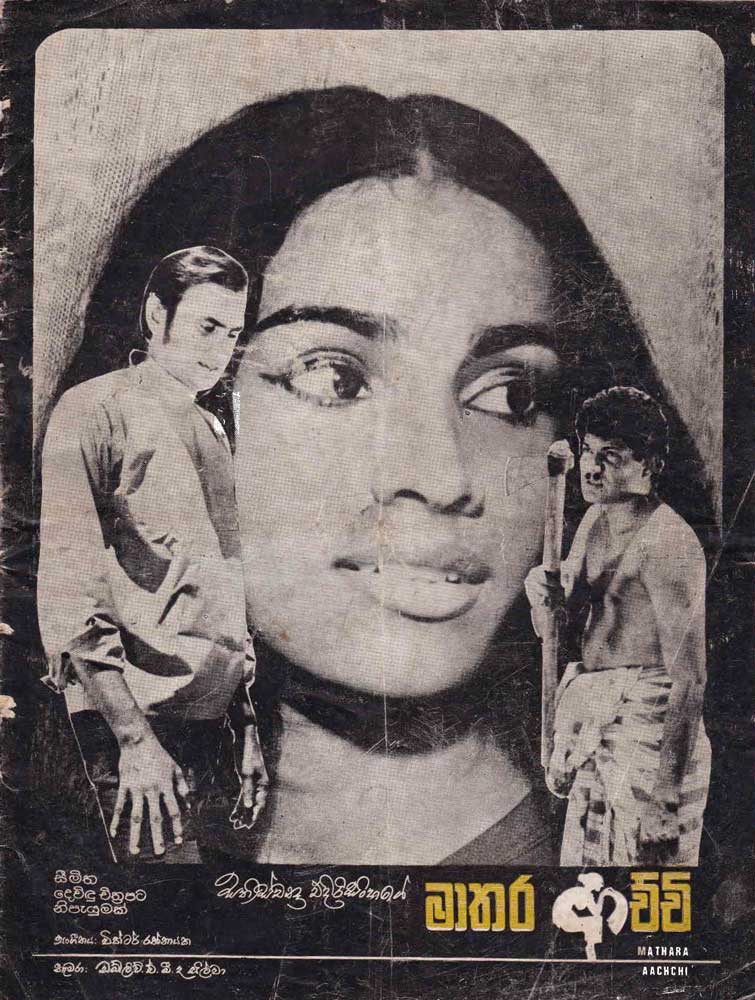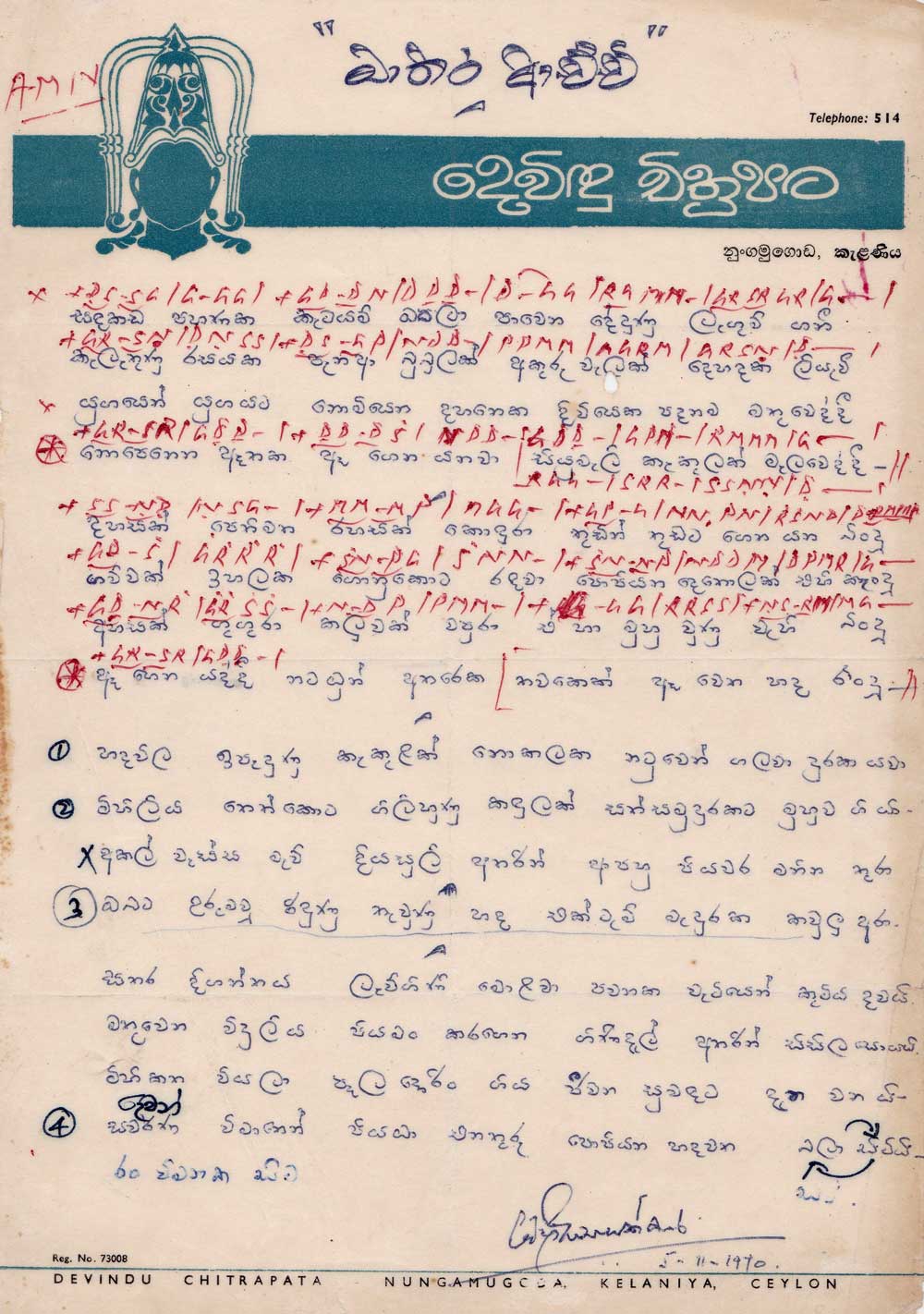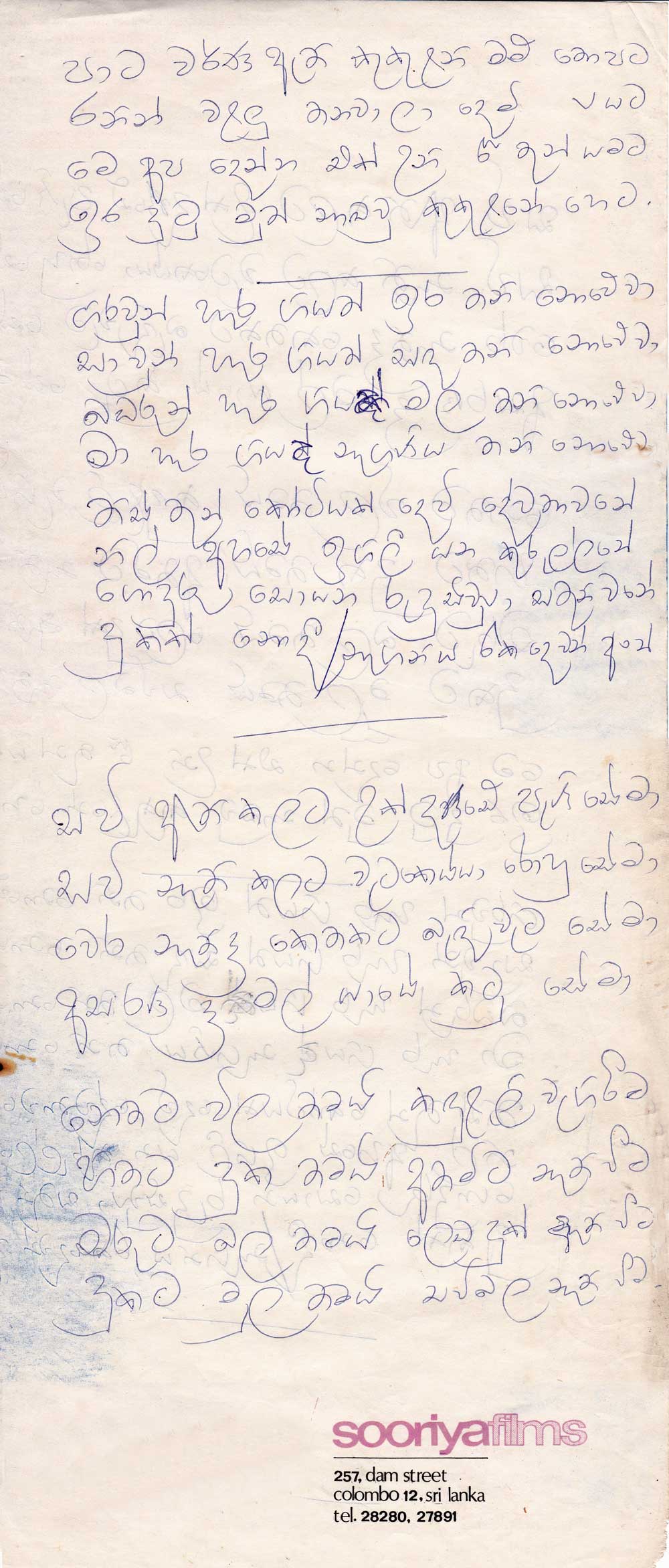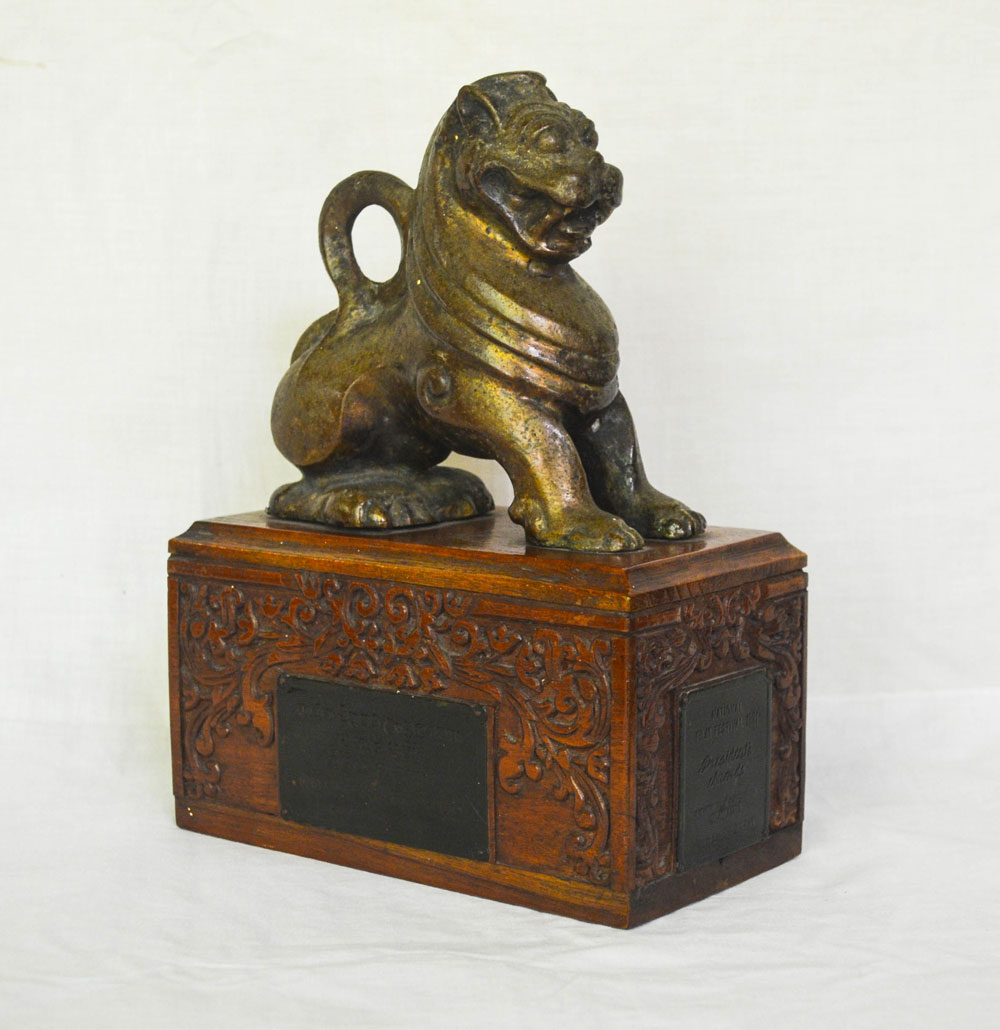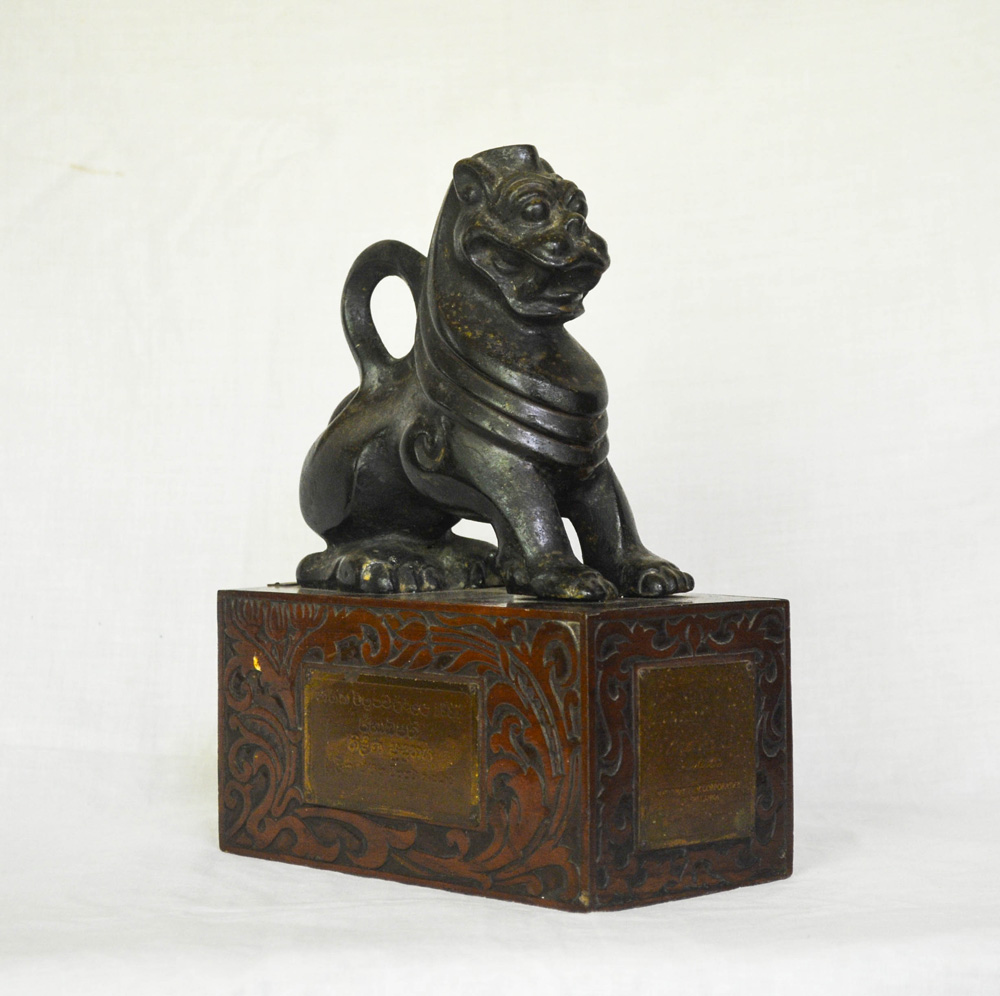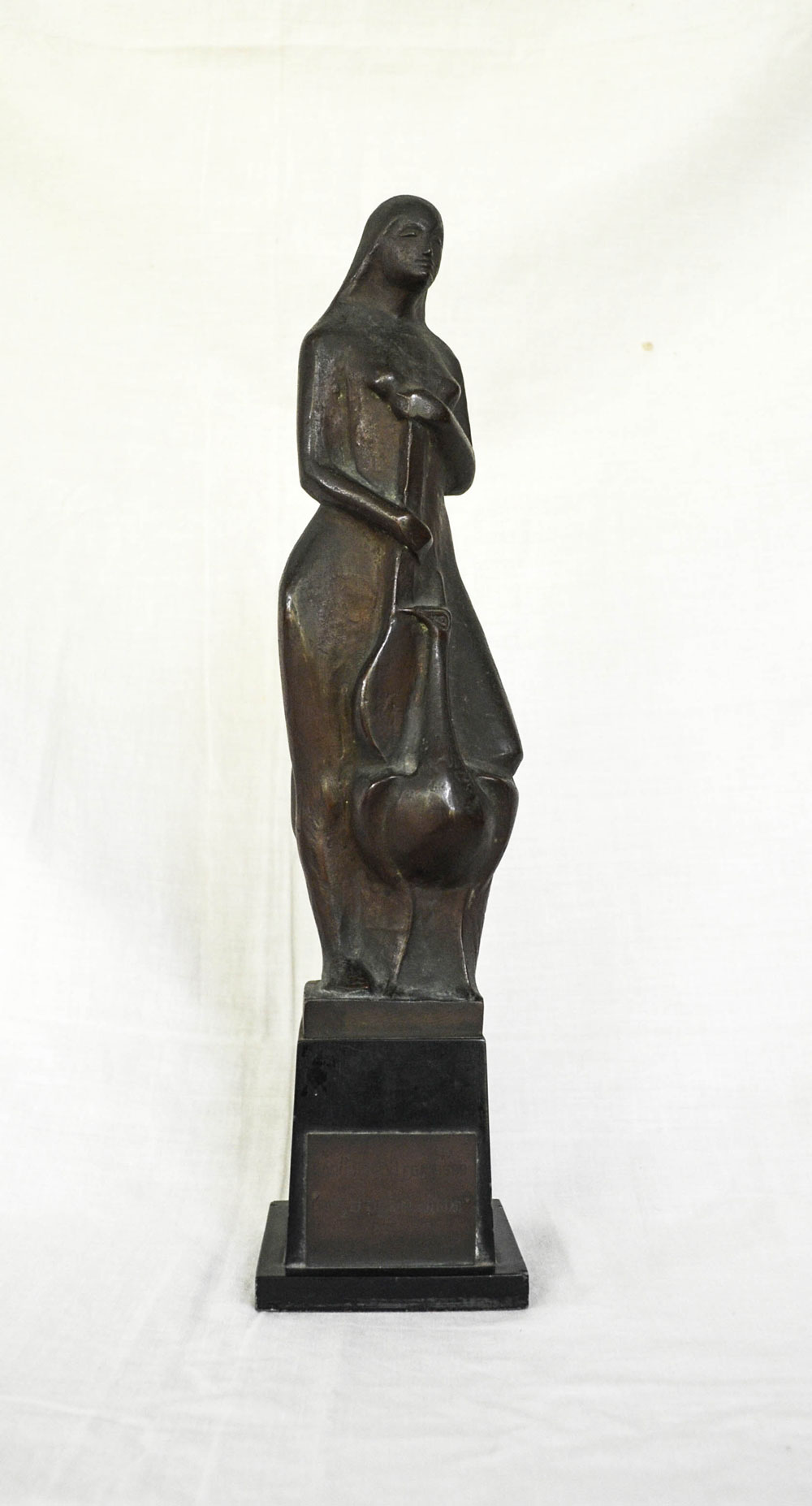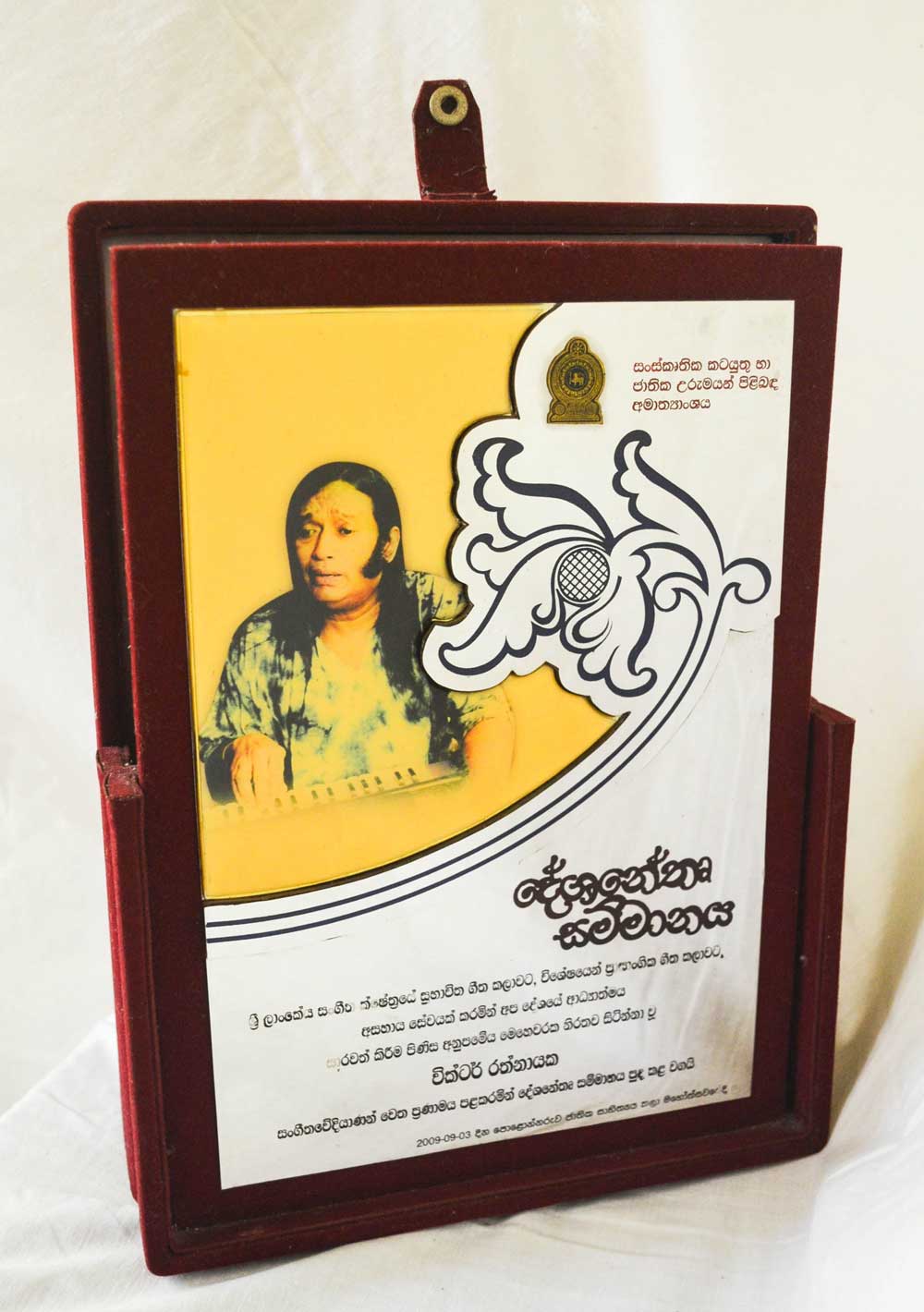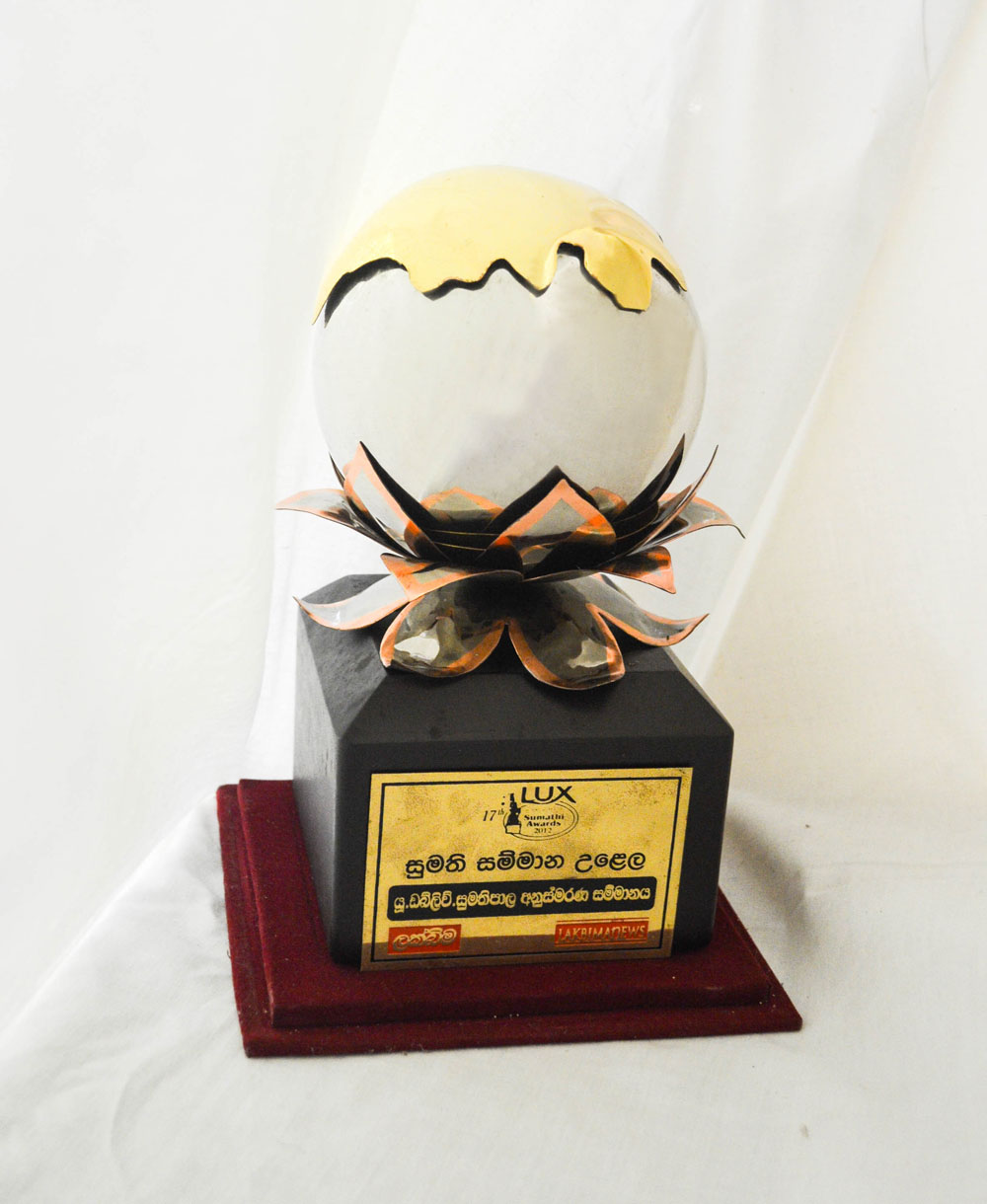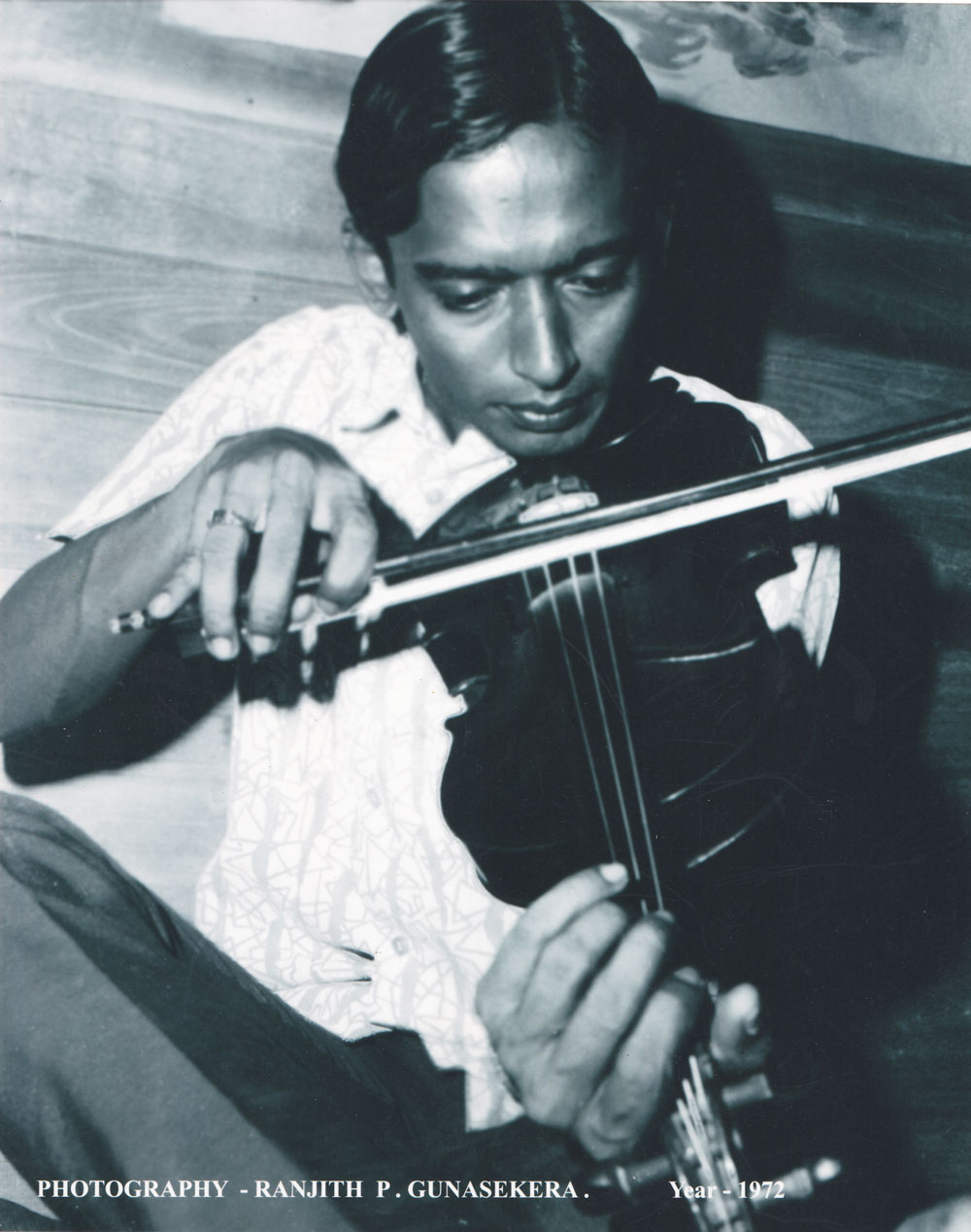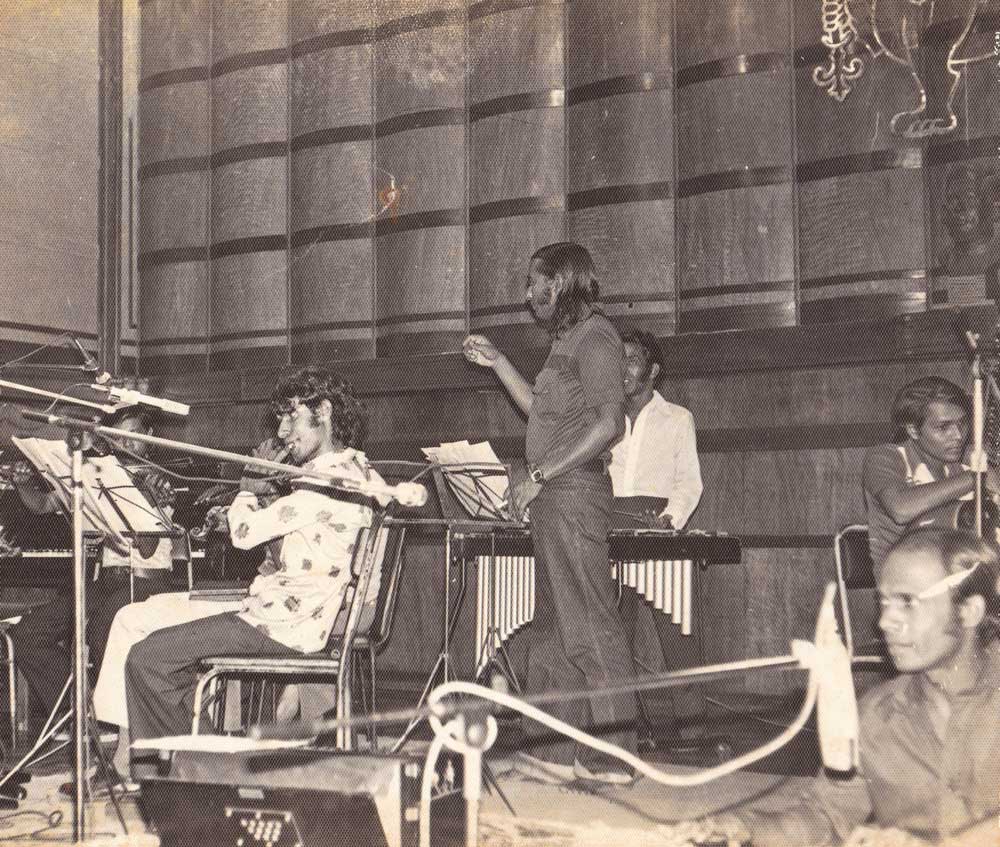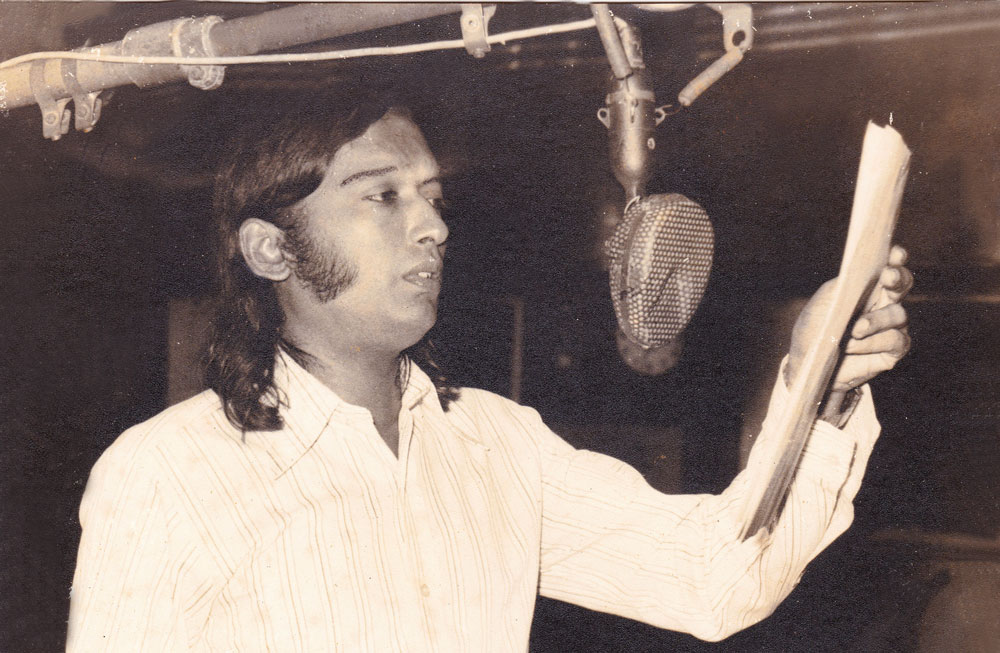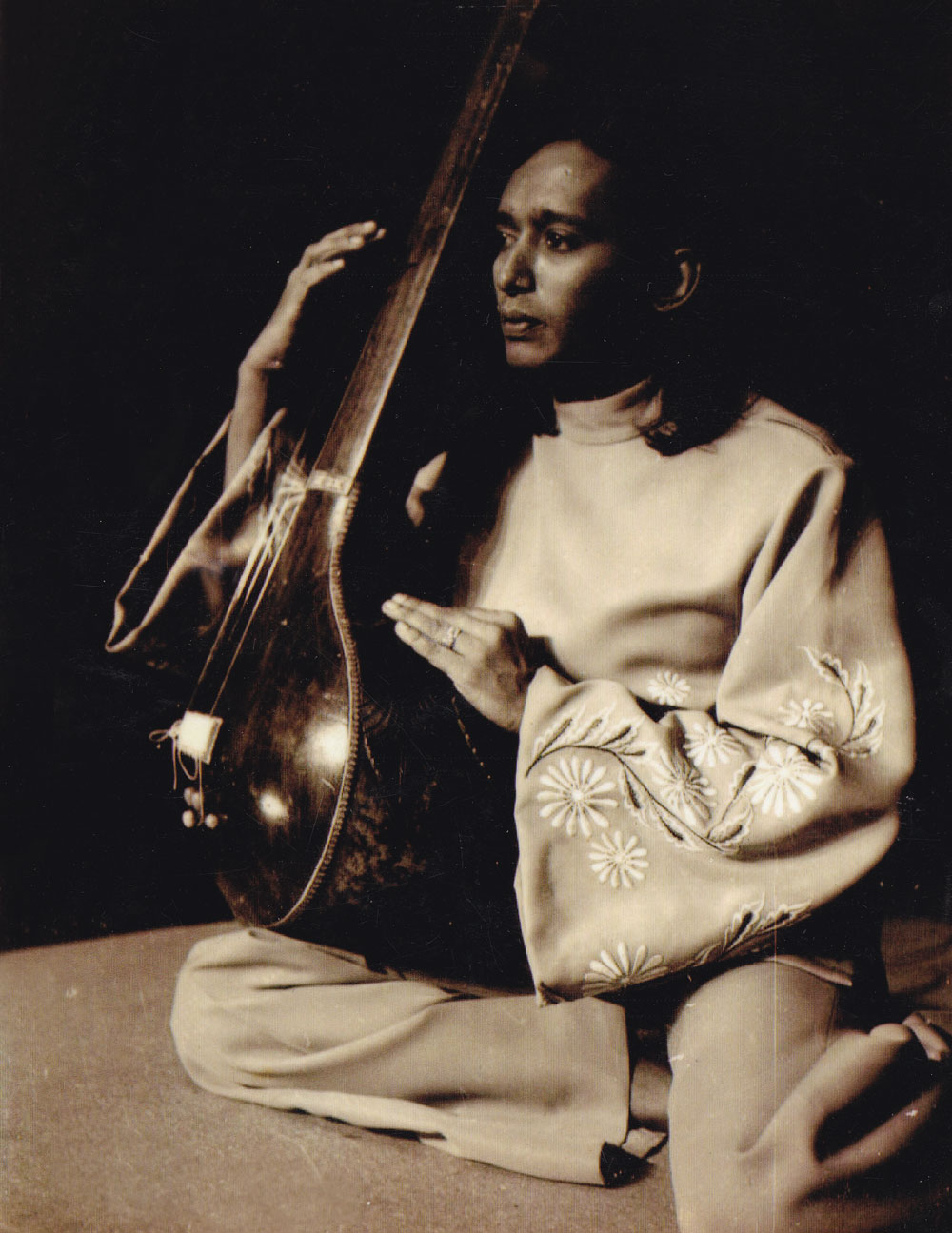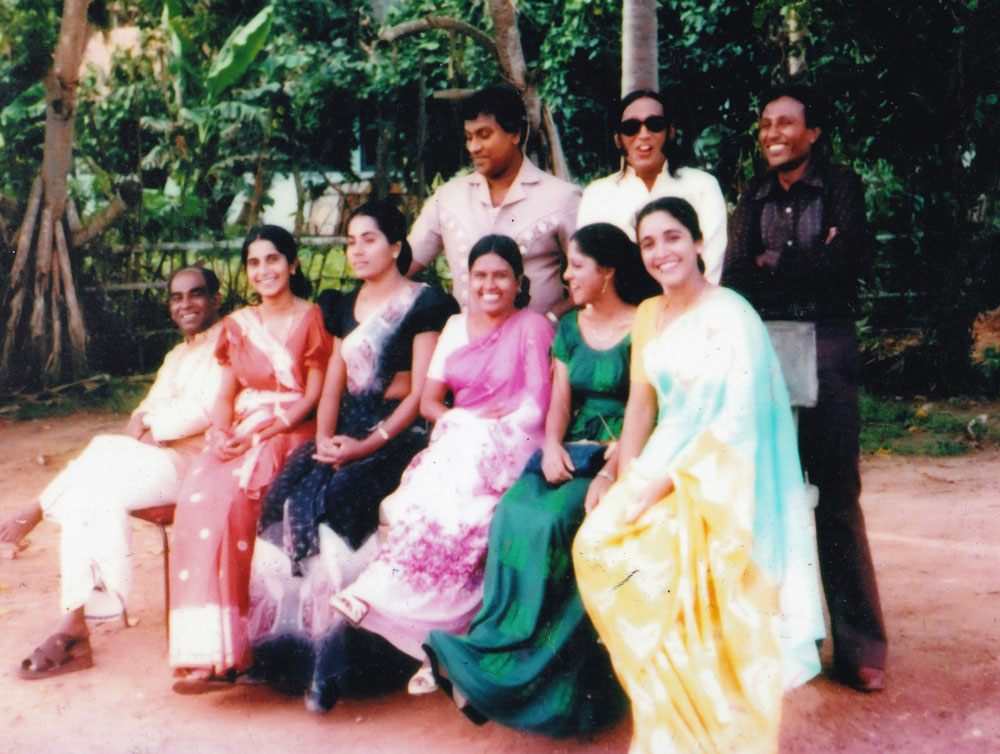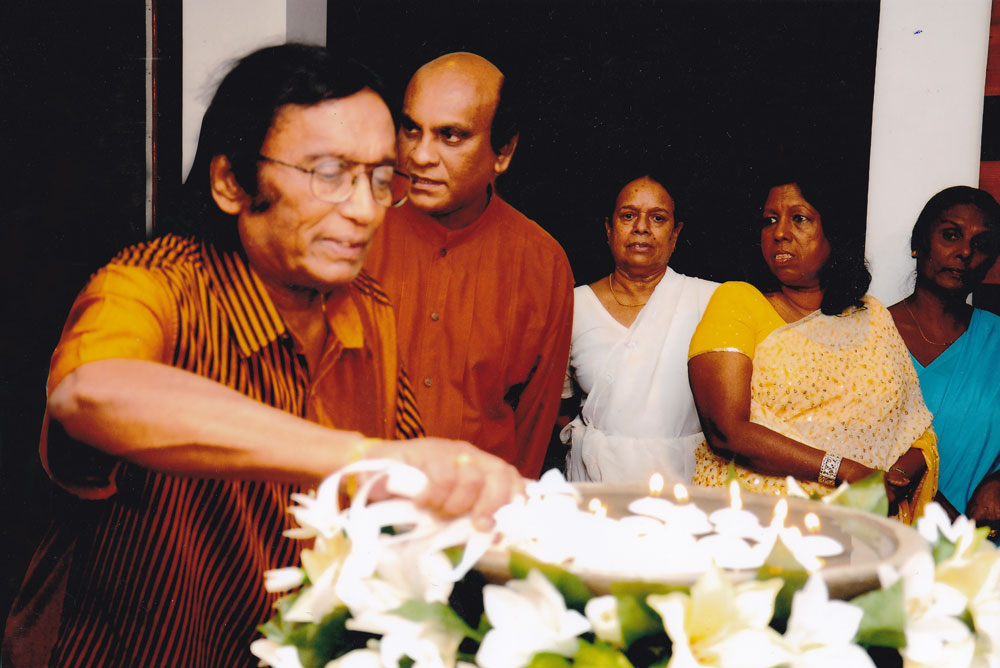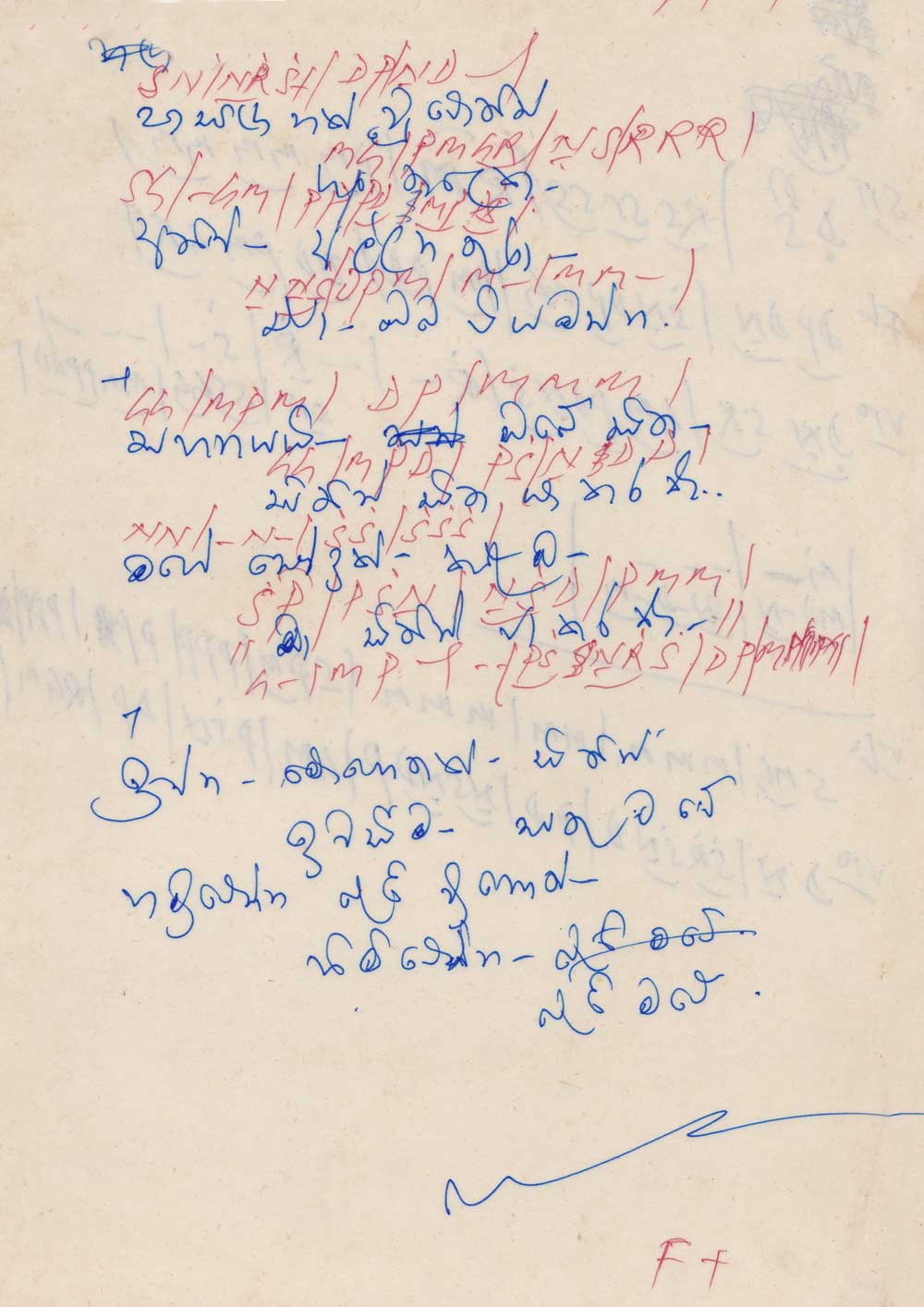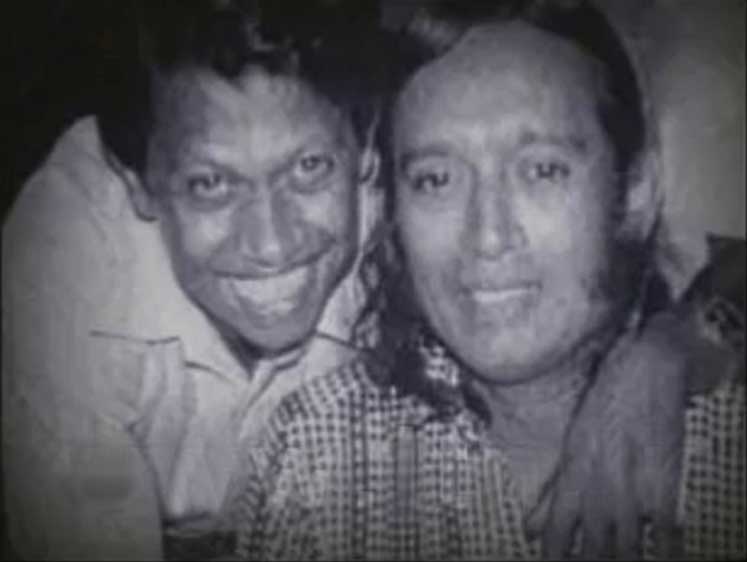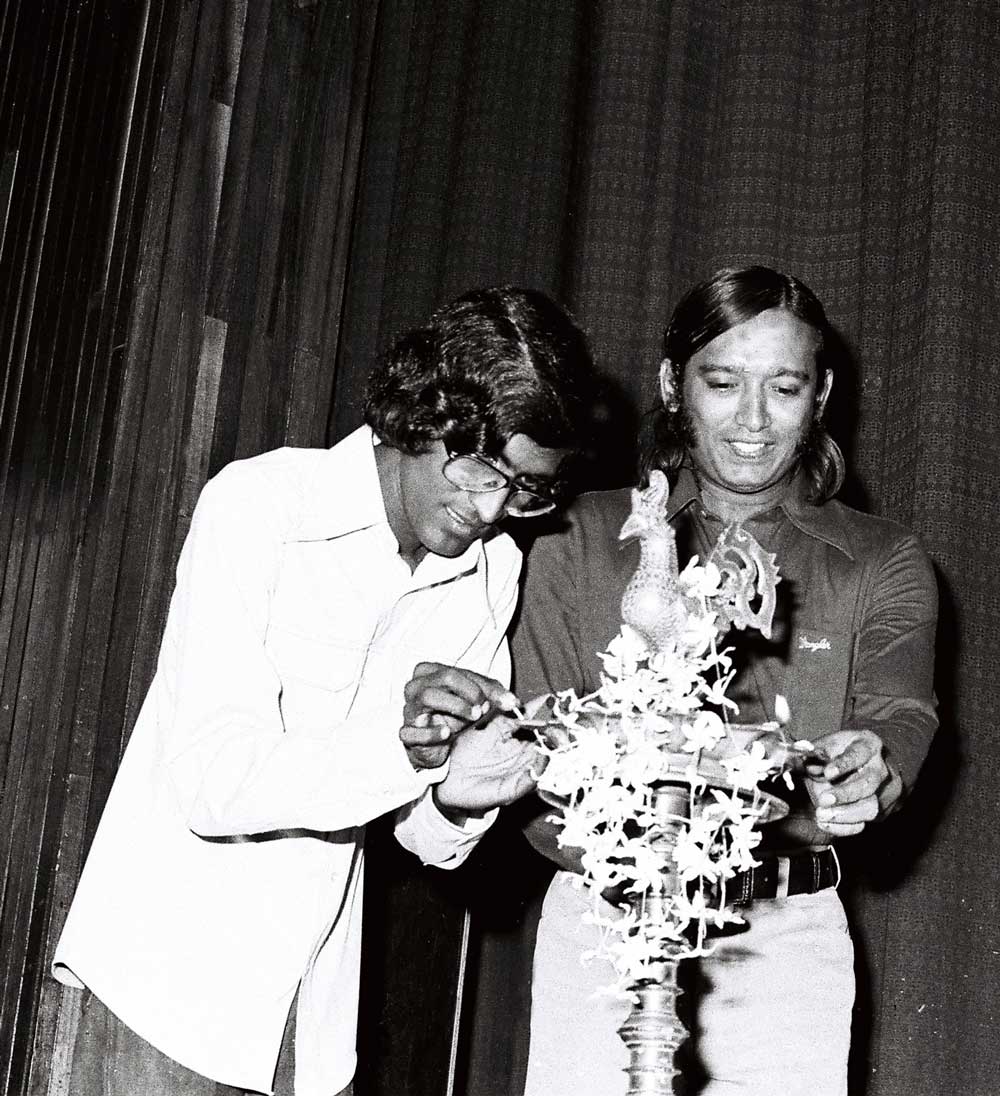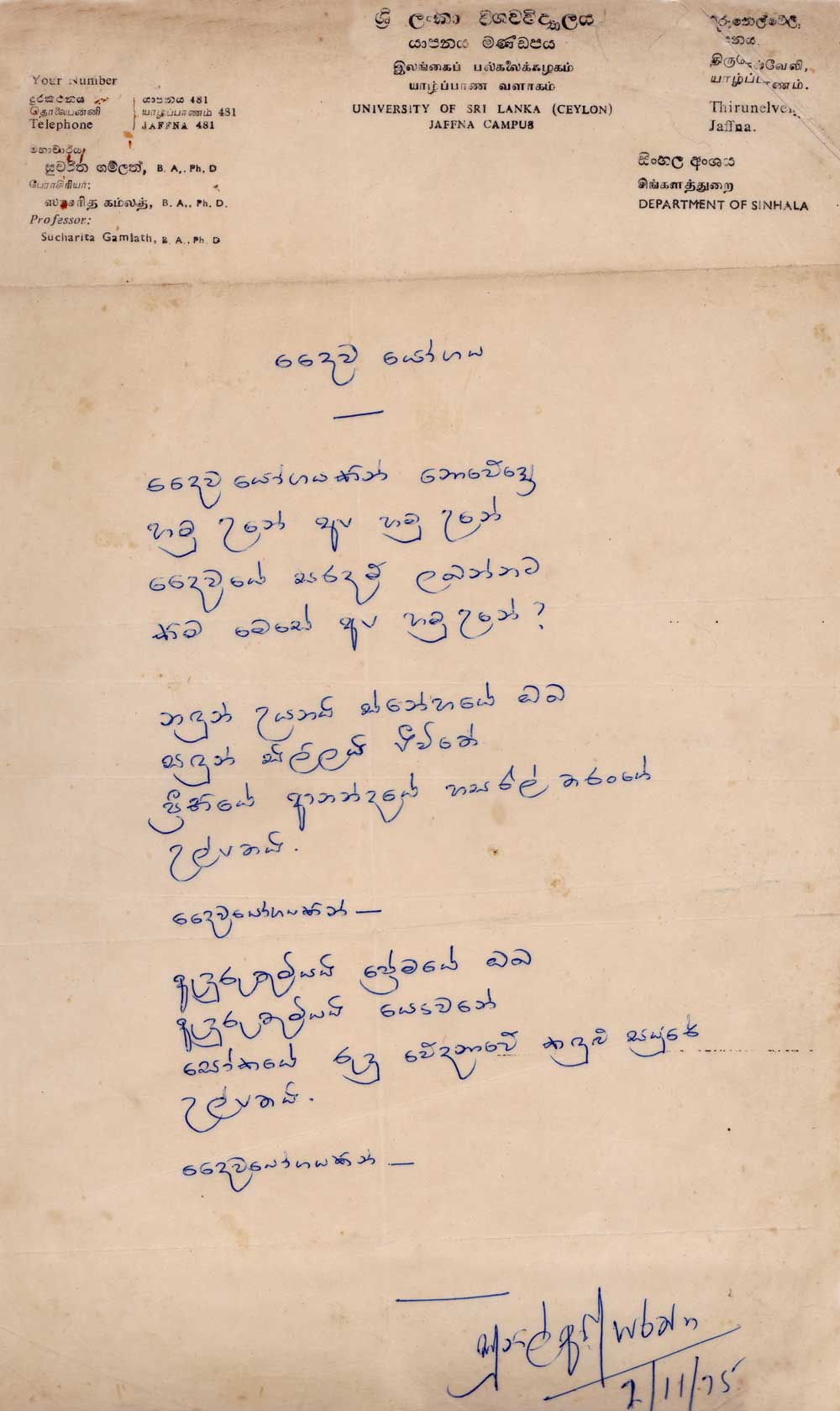Biography
Victor Ratnayake was born on February 18th, 1942 in the town of Kandy (Central Highlands), home of the sacred “temple of Buddha’s tooth relic”.
His father, Ratnayake Arachchilage Don James, was an apothecary serving the State Pharmaceuticals and his mother was named Abeykoon Mayadunnelage Sumanawathi. Victor was the 3rd in a family of 10 children and their home was the rural town of Kandangama in Kadugannawa, few miles away from Kandy.
Victor’s immediate younger brother, Somapala Ratnayake was the first child of the Ratnayake family to pursue any interest in music. At present he is a renowned musician, having composed music for Cinema, TV and popular songs.
Victor loved listening to Hindi and Tamil film songs, he often overheard when those movies were regularly playing for audiences inside temporary tents on Municipal Council ground in town. Victor enjoyed accompanying his mother to the weekly flea market in town on Sundays as he was fascinated by Dolki Drummers and Japanese Mandolin players regularly performing there. Only mother’s continues persistence made Victor return home on those visits. Once returned, Victor usually put the groceries aside and tried singing the songs the musicians were playing at flea market by beating to a hollow metal device. On those occasions, elder brother Wilfred assisted him by providing rhythm and the performances demonstrated Victor being a gifted natural born singer.
D.A.D. Dharmadasa, a railway signalman at the local train station by profession, was Victor’s earliest mentor, who happened to be friends with his father. D.A.D. Dharmadasa was known for singing and playing Indian Harmonium, despite not being a professional musician. His suggestion resulted in Victor receiving a “Foot Belo” Indian Harmonium as a present from his father.
Victor entered hometown junior school for primary education and completed his secondary education at the Central College in the same town. Under the guidance by school music teacher K.M. Sugathapala, Victor participated in All Ceylon Interschool music competition in representing his school at the individual singing category and won the award consecutively on 1958 and 1959.
Victor’s father realized, mere ability to sing or play Indian Harmonium do not acquire proper knowledge in music and enrolled Victor at M.G.P. Institute of Art, in Kandy to follow academic studies on music.
Victor recollects what followed, in his own words.
“Cyril Perera, (founder of the M.G.P. Institute of Art) educated me on Indian Harmonium not being an instrument helping master exams at that time. On his advice, Father bought me a Violin. I learned the fundamentals of classical music under my beloved teacher Cyril Perera, fond memories I cherish forever with utmost gratitude.
Since becoming his student, I let go many of my early practices such as playing the Indian Harmonium and singing and pitching without proper knowledge of music notes. Instead I mastered both classical and traditional practices on singing and playing. Those practices enlightened me and any pride or ego I had on my mind for being a natural musician, vanished with immediate effect.
Six months into the training, I was granted a full scholarship by my mentor, allowing me to pursue my studies free of charge and I consider myself an ungrateful student, if I fail to mention that at any given time.
In my journey filled with diverse sentiments and experiences, meeting master musician R.A. Chandrasena was an important landmark as he pioneered in guiding the course of my artistic path towards an amazingly successful career.
The place was Kandy Lake Social Club Hall and it was an audition for amateur singers. Examiners were, R.A. Chandrasena (Indian Harmonium), M.K. Roksami (Violin), A. J. Kareem (Clarinet) and Wimal J Ariyaratne (Dolkey). I heard my name was called after three amateurs were examined. I still have no recollection of how I moved to stand up in front of this quartet of legendary musicians. I can only recall, R.A. Chandrasena asking me which song I was going to sing and, me replying with a name of a Hindi song called “Meri Kahani”.
I believe, on that day, my artistic career was baptized. “
That groundbreaking event marked the arrival of Victor’s musical career into a new era filled with vivid experience.
During that time, Sri Lankan audience had the luxury of a single Radio Channel, owned by Sri Lanka Broadcasting Corporation. Early 1960’s witnessed the broadcasting of number of sponsored musical competitions on Radio (SLBC – Commercial Service).
Following his application, Victor received a call to participate in “Airship Music Competition”. Victor had a previously committed engagement on the same day, and he visited SLBC with his neighbor, Udayaratne Brahmanayake to inquire about the possibility of changing the scheduled date. Dayaratne Brahmanayake was no stranger to SLBC, since he was a popular newspaper columnist and an announcer in provisional musical concerts. SLBC authorities informed Victor about the inability to change the scheduled date. Victor, always preferring to defy challenges, accepted to perform the song the same day. “Yannata Siduwei Maranaya Ada – Maruwa Hata Na Kisiwita Bada” written by Dayaratne for the stage play “Sahodarayo” directed by himself, was that song. Original music for the song and the play was also composed by young Victor, who wasn’t even a certified artist at SLBC at that time. With this performance, Dayaratne Brahmanayake became the first lyricist for Victor.
1963 marks another landmark event in Victor’s music career as he joined State Aesthetic School (Haywood – University of Visual and Performing Arts) for higher education. Victor and his notable contemporaries ( Mervin Perera, Sarath Dassanayake, Sena Weerasekara, Sujatha Aththanayaka, Amarasiri Peiris, Punyasiri Mahawatte, Amitha Wedisinghe, Berti Ranasinghe a.k.a. Cello Berti) studied under an exceptional faculty consisting Visharad S.D.S. Jayasekera, Visharad Gunasena de Silva, Visharad Premawansha Hapuwalana, Visharad Gunapala Perera, Visharad Dharmasiri Perera during the glory days of State Aesthetic Institute, when music scholars as Pandith Amaradeva, Prof. Amara Ranatunga, Visharad D.R. Peiris, Visharad B. Victor Perera, Sangeeth Nipun Shanthi Geethadewa, were on academic staff.
Written by lyricist Piyasena Kosta and composed by R.A. Chandrasena, the song “Devangana Paradana Komala Katha” featuring in radio drama “Manichora”, marked the first recorded song of Victor as a professional singer. The song aired on radio for the first time on 6th July 1963 with Piyasena Kosta becoming Victor’s first radio song lyricist.
First Song Of Victor
The Journey Continues
Written by Dalton Alwis and composed by D.R. Peiris, the song “Hade Susumak Pathitha Weemen” which Victor performed for Madawala S. Ratnayake “Pancha Madura” radio program, was Victor’s debut song for a Radio Vinyl record.
Renowned literary figure Areesen Ahubudu was the first to pen lyrics for popular songs on radio for Victor with “Sinda Binda Mohanduru Paapa” and “Golu Muhude Muthu Ate” featuring in inaugural performance for a popular song program on radio by Victor. “Atha Penena Himaw Kandu Matha” written by Punyasiri Mahawatte, was the third song performed by Victor for the same program.
“Obe Sewanella Wage Emi”, a duet with Sujatha Attanayake, written by Hema Sri Alwis, “Mayurasana” featured in debut pop songs program at SLBC commercial service and “Soka Sanasum”, “Pawe Wala”, written by Meegoda Wilson and composed by Mervin Perera, became hit songs frequenting radio broadcast at that time.
Victor started his teaching career in 1966 at Nawalapitiya Central College in Bandarawela (Hill country) and the melody for Victor’s popular song “Sihil Sulan Ralle” was created, during one of his trips to Bandarawela on the train. Sena Weerasekara composed a beautiful lyric to complement the soothing melody, moving Victor closer to hearts of musical fans.
“Sara Sonduru Mal Patali”, a duet with Nanda Malini, from the film “Hanthane Kathawa” (directed by Sugathapala Senarath Yapa) was Victor’s film song debut. Lyrics were composed by Mahagama Sekera and music composition was created by Premasiri Kemadasa.
July 20th, 1973 celebrates the most important landmark in Victor’ artistic journey as it marked the premiere of Victor’s “Sa” concert at Lumbini Theatre in Colombo and “Sa” became the first musical solo concert to reach 1500 performances.
Victor contribution to the film scores is less in numbers, but rich in diversity. He composed original music to a handful of films representing different genres, as classical, commercial and children’s. His film scores suited each film according to the film’s genre. “Mathara Achchi” (directorial debut by Sathischandra Edirisinghe) released in 1972, featured Victor’s first original score for a motion picture. This was a landmark film marking the debut performances and contributions of many prominent artists. Wally Nanayakkara made his debut as a lyrics writer. This film was also the screen debut of Swarna Mallawarachchi (most local best actress award winner), even though film audiences have seen her on screen, due to the delayed theatrical releases of “Matara Achchi”. Mostly importantly, same film marked the arrival of a gifted singer who later became an immensely popular marquee singer of all-time, namely Sunil Edirisinghe, through “Sandakada Pahanaka Katayam Obala”, a beautiful song filled with inter-music compositions. That alluring song made Sunil Edirisinghe, an amateur singer with no recorded song at that time, an overnight sensation amongst musical fans. The film featured the song “Sandun Sihina Sihil Anduna Palu Prema Nagare” a duet by Victor with Sujatha Attanayake, was also the first instance, master lyricist Prof. Sunil Ariyaratne wrote a film song for a duet. Another song from the same film, “Andura Bindinnata Rayak Dawalu Lantharum Niwala” penned by Premakeerthi de Alwis, become a beloved timeless classic in Victor’s discography. Theme song of the film was performed by Milton Mallawarachchi and a chorus. Written by Siri Kularathna, the assistant director of the film, it was called “Ran Dedunu Ran Patin Weluna Ranwala” and since its release, the song has become prominent in Milton Mallawarachchi’s most popular hits collection.
- Victor composed original score for the film “Rajagedara Paraviyo” directed by Sathischandra Edirisinghe in 1975 and featured two smash hits “Hinahenna Romeo Mamai” (Duet with Latha Walpola – lyrics Prof. Sunil Ariyaratne) and “Neela Bingu Kala” (performed by Victor – lyrics K.D.K. Dharmawardena).
- in 1975, Victor composed music for “Dushkara Kriya”, a short film by Sunil Ariyaratne and “Haratha Hathara” a feature film by M.S. Kumar.
- Music direction for “Hulawali” (1976 – directed by W.A.B. de Silva) featuring prominent lyricists, Dharmasiri Gamage, Sunil Ariyaratne and K.D.K. Dharmawardana, was one of the finest works by Victor. “Kuda Game Maddahane” and “Kula Gedarin” performed by Sunil Edirisinghe and Bandula Wijeweera respectively, became all time fan favorites.
- Victor re teamed with Sathischandra Edirisinghe to compose music for Sathichandra’s film “Shree Madhara” and “Hise Gini Avilethe”, performed by Sunil Edirisinghe (lyrics – Premakeerthi de Alwis) marked a turning point in his own singing career. Film contained another period hit “Gahakola Mal” (lyrics – Sunil Ariyaratne), Victor performed with Latha Walpola.
- Victor’s music direction for film “Anupama” (1978) Prof. Sunil Ariyaratne directorial debut, made way for the release of several landmark songs. “Sihina Wile Nilupuli” was the first film duet for Latha Walpola and H.R. Jothipala and also mark the film song debut for renowned lyricist Kularatne Ariyawansa. H.R. Jothipala’s “Raja Kirulu Palandapu Rajjuruwo” (lyrics – Prabhath Manawasinghe) and Abeywardana Balasooriya “Maru Kathare Pipuna Malak” (lyrics – Thilakaratne Kuruwita Bandara) became immensly popular songs.
- An innovative and experimental music direction Victor Ratnayake conducted for “Sarungalaya” (directed by Prof. Sunil Ariyaratne – 1979) gained popularity in mainstream. Hit duet “Bambarindu” performed by Amaradewa & Nanda Malini, containing lyrics written by screen icon Gamini Fonseka, “Isuru Devindu Umayangana” (lyrics – Thilakaratne Kuruwita Bandara, performed by – Abeywardana Balasooriya & Niranjala Sarojini), a moving duet featuring experimental Karnataka Music rhythms, were part of the film. Popular success of the latter song is an homage to Victor’s audacity for using classical Karnataka instruments, placing him ahead of his contemporaries engaging in experimental music for films.
- “Upan Handawiye Dukak Ahala Nathi Ape Adawiye” performed by M.S. Fernando and chorus (lyrics – Kularatne Ariyawansa), since become a memorable song embraced by fans. 4 songs in movie “Sarungale” were equally savored, but featured distinct qualities. Unfortunately, Juries for local film awards and festivals, failed to properly appreciate Victor’s richly deserved work for “Sarungale”. Victor’s contribution to the music in Cinema, was left unrecognized, under-appreciated and victimized, mostly due to the sordid nature of editors helming a marquee newspaper, also the monopoly in local film awards
- “Podi Malli” (directed by Prof. Sunil Ariyaratne – 1979) victor composed music for 4 songs along with film score. “Kohe Sita Oba Paminiyedo” (lyrics K.D.K. Dharmawardena) song featured in the film as a part of Victor’s live performance of the “Sa” concert. To this day, that song is the only instance, a part of Victor’s “Sa” concert featuring in a motion picture.
- Siribo Aiya” directed by Prof. Sunil Ariyaratne – 1980 (Won President's’ Award for Best Music Director)
- Thawalama” (Bullock Cart) directed by Lal Perera – January 1981
- Sayuru Thera” (End of the Ocean) directed by Nimal Silva – March 1981
- Vajira” directed by Prof. Sunil Ariyaratne – 1981 May
- Athuru Mithuru” (Little Friends) directed by Ariyaratne Vithana – 1986 (Won President's’ Award for Best Music Director – 1987
- Ambu Samiyo” (Husbands and Wives) directed by Nishantha de Alwis – 1994 directed by Ariyaratne Vithana
- Adarei Man Adarei” (I Love you) directed by Prageeth Ratnayake
Discography – Tele Dramas
- Hima Hansi – directed by Jayantha Ranawaka
- Muthu Kumari – directed by P.U.D. Perera
- Yalui Api Yalui – directed by P.U.D. Perera
- Punchi Yaluwo – directed by P.U.D. Perera
- Pahan Tharuwa – directed by Nishantha de Alwis
- Irata Handana Mal – directed by Chandrarathna Mapitigama
- Muwan Palassa – directed by P.U.D. Perera
Discography – Stage Plays
- Sahodarayo – Dayaratne Brahmanayake
- Wyagra – Jayantha Ranawaka
- Aththikka Mal Pipila – Sathischandra Edirisinghe
Depending on the spectrum of the Festival and extension of particular items and aspects. U.W. Sumathipala Commemorative Award is a life- time presentation to male & Female Artists, and Technicians, who did reader an invaluable service and contribution to the large spectacular arena of Televisions, its art and craft. In 2012 this Award goes to Victor Rathnayake.
Proving the fact that many prominent singers were skillful Violinists at the beginning of their careers, Victor was also an accomplished Violinist before becoming a singer.
Violin is the musical instrument with the closest similarity to human voice. Unlike other musical instruments, it can originate music on its own and correct notes aren’t marked on its body. That same reason makes Violinist develop a sharpened skill in identifying the correct note just by hearing. That skill makes them expert in musical notation, giving them an edge in pitching when they turn into singers.
Maestro Amaradeva lauds Victor by saying “Victor has a gift in practicing correct notation and he is never off the pitch. I say he is a singer with enormous talent”, probably for that specific reason.
Maestro Amaradeva leads an elite group of musicians who were initially Violinists before becoming successful singers, namely B. Victor Perera, Mervin Perera, Amarasiri Peiris, and D.D. Gunasena. T.M. Jayaratne, Nimal Gunasekera.
SLBC recordings were subjected to strict guidelines enforced by a prejudiced orthodox panel, during that time. Any instrument branded “Western” was completely banned from participating in SLBC recordings. If closely observed, “Maduwanthi” a program associated with Maestro Amaradeva, would have created much more alluring songs, if it was allowed to use Western musical instruments on relevance.
Victor arrived in SLBC to record songs under those circumstances.
Amaradeva set the stage for original Sinhala music, but when evaluated on melodious merits, they fall back. Victor’s iconoclastic contributions broaden the horizons of Sinhala song by shattering the limitations of conventional trends at that time, with incorporating classical western musical harmony, counterpoint and orchestral music to his debut pop songs program at SLBC. “Sinda Binda Mohanduru Papa Kriya”, “Atha Penena Himaw Kandu Matha”, Golu Muhude Muthu Ate” were his first songs recorded for SLBC and groundbreaking techniques he pioneered in creating those songs elevated Sinhala pop song to a new level earned Victor his rightful place in history.
This modernist movement founded by Victor during mid-60s, established a musical symbolic status referred as “Victor Ratnayake”. This new trend in Victor’s music attracted many veteran and amateur artists swarming him for melodies.
Victor was the pioneer in introducing perennial western musical instruments banned from SLBC during that time, as drums, Obo, Bassoon. Saxophone, Cello, Clarinet, Trumpet, Double Bass, Corangale, and shape the way of Sinhala music.
Late singer Gunadasa Kapuge was the recording technician on such occasion, when Western musical instruments paraded into a SLBC recording studio. Kapuge recalls that incident,
“I was waiting for Victor at studio number 5. I have not sung a single song by then. I had 4 microphones ready by the recording machine. Victor arrived and the orchestra followed him one by one. One, two, three, four....and by the time last member entered the studio 5, Victor’s orchestra had 22 members. I went crazy. What was I supposed to do with 4 microphones? There was an Audio Engineer at SLBC named Ranjith Edirisinghe. I asked him for help to overcome the trouble I was facing. Ranjith was quick to borrow seven, eight microphones from neighboring studios and connected an additional mixer brought from another studio, transferring studio 5 into a massive recording studio. Song recorded that day was “Malsara Ukdandu Dunnen Pani Bee” and I never had a recording experience filled with that much anxiety and tension. But we felt an amazing joy with that recording.”
Victor proved he wasn’t biased towards classical western music, by using techniques of North Indian Classical music techniques as Meend, Gamak, Kan, Andolan for Vocal melody and Gazeth, Zam Zamam, Krinthan for orchestra, for his pop music program for SLBC.
The recording of the song “Malsara Ukdandu Dunnen Pani Bee” previously mentioned by Gunadasa Kapuge was the one and only instance in the history of SLBC, where two studios were connected by removing partition separating them, in order to accommodate an orchestra.
Victor became the first musician to enlist a larger orchestra to record a song and also became the first musician to record a song using a minimal orchestra (only Harmonium and Dolacki) when he recorded “Podi Kumari Hamiye” written by Prof. Sunil Ariyaratne.
LP discs play in two different formats according to rpm (rounds per minute) and Victor was the first to create a song using both formats, a technique known as “Chipmunks”. That song titled “Punchi Hami” was banned by SLBC from broadcasting and Victor’s initiative was simulated by several artists using that technique to create songs. In a time, where technology was utilized to a minimum effect, technician Ranjith Edirisinghe handled that recording to the amazement of his peers.
Written by Prof. Sunil Ariyaratne, song“Maliniye” was another experimental endeavor of Victor using the “sound on sound” technique to create a novel recording. Content of the song referred to a conversation between the conscience and the subconscious of a person.
Sri Lankan melodies were mainly based on North Indian Classical or Western Musical traditions, but Victor used South Indian Karnataka music as an additional tradition to complement the two most common ones to create his melodies to subtle effect.
- Kotta Kelengei Thambala
- Meena Nuwan Yugin Balan
- Kundumani
“Sarungalaya” and “Thawalama” are examples demonstrating the fact that Victor was the first mainstream musician influenced by South Indian Karnataka music in creating pop songs and film scores.
Victor is responsible for creating many songs of Buddhist devotion, apart from love songs and patriotic songs. Victor drew inspiration from Buddhist practices as Pirith and Gatha verses, as well as classical Indian music to create those songs.
Raised Buddhist, Victor didn’t shy away from drawing inspiration from Chorus Singing associated with Catholic Churches and often associated local folk music to effect in making his own creations. Victor has composed several melodies for songs of Christian devotion, based on that familiarity.
Constantly innovating and evolving Victor as a musician can be considered as a university with academic values and application, but his modesty always preceded ego, resulting in him being a down to earth humble artist, appreciated by the industry and public alike.
Victor distinguished between ego and pride as he took immense pride in his work, for which he is known as a “charming radical”.
It is a commonly accepted fact that, Sinhala pop song would never have broken free from the traditional traits and eventually would have faced with a woeful fate, if it wasn’t for Victor Ratnayake who pioneered the movement that revolutionized it.
Victor’s soothing voice can be compared to a Sitar voluntarily responding to the softest touch of a breeze. Victor’s ultra-sensitive melodious voice exposes his mellow spirit. Amaradeva and Victor both share an unparalleled admiration amongst singers with most distinct identities in Sinhala history. Amaradeva transforms into a trance when performing. Victor lacks Amaradeva’s hand animations and transcending nature in his performances. When performing, Victor reaches an Indian Harmonium or another musical instrument with the discipline of the clergy in reverence to a deity. Victor shrinks his whole spirit into the performance and portrays a symbolic image of quintessential sentiment of eastern music. Victor engages in his trance to the end of a performance while using his songs as purification ritual to relieve the most subtle emotions of the human sentiment.
According to Victor, song is a subtle visual performance solely backed by voice. His maneuvering of lyrics, the way he lifts their emotions, liveliness he breath into those words together forming a mesmerizing listening experience for audiences, can be quite amazing.
With an exceptional ability to excel any musical style including performing, conducting, singing, composing, arranging, and orchestration of music, Victor Ratnayake qualifies for the textbook definition of the word “Musician”.
Generous creative philanthropy, is a much revered characteristic in Victor’s creativity. His melodies and music compositions have contributed to the benefit of artists ranging from Mohideen Beg, Rukmani Devi, Amaradeva, C.T. Fernando, Milton Perera, H.R. Jothipala, Nanda Malini, Latha Walpola, Sisira Senaratne, Sujatha Attanayake, Mervyn Perera, Sanath Nandasiri, Neela Wickramsinghe, Milton Mallawarachchi, Sunil Edirisinghe, Edward Jayakody, Somathilaka Jayamaha, Freddie Silva, Niranjala Sarojini, Nirmala Ranatunga, Chandralekha Perera to Samitha Mudunkotuwa, Nirosha Virajini, Nelu Adikari, Uresha Ravihari and eventually reaching latest generation singers as Harshana Dissanayake.
Victor is a fountain, generating endless flow of enchanting melodies and donated his work to fellow artists regardless of their differences. Victor always donated his best work to others when requested, completely ignoring the fact of such song becoming a viable threat or challenge to popularity of a hit song of his own at the same time.
“Sandakada Pahanaka Katayam Opala” is a prime example of Victor donating one of his most striking melodies to a complete amateur. Abeywardana Balasooriya credited Victor for creating many notable melodies for him, which helped secure Abeywardana, a memorable place in hearts of the fans.
Even today, Victor finds solace in emphatic joy, by simply reminiscing those melodies and success of their beneficiaries.
- Sunil Ariyaratne was a high school student when Premasiri Khemadasa opera “Sithijaya” was staged in 1968. Stage play was written by Sunil’s elder brother Thilakaratne Kuruwita Bandara. He commissioned his very own little brother Sunil to write lyrics for the play. By that time Victor has already become a singing sensation having performed hit songs “Sihil Sulan Ralle”, “Soka Sanasum”, “Pawe Wala”. Sunil befriended Victor, when he visited the set for a rehearsal and from that moment, fate took its course and extended their artistic collaboration indefinitely.
- “Katu Koholin Pirunu Lowin – Kidaramin Wasunu Lowin”
- Sunil’s lyrical debut was performed by Victor and Sanath Nandasiri and though it was broadcasted on Radio, the song was performed only for a musical program, not for a SLBC recording.
- “Thotupola Ayine Kavuda Atha Wananne” was the first song Sunil wrote for “Geetha Tharangani” a musical program produced by G.S.B. Rani Perera.
- “Handata Andana Kiri Daruwo” for film “Nim Walalla” (directed by Ranjith Lal) performed by Victor Ratnayake, was the debut film song for lyricist Sunil Ariyaratne. Victor composed music for Sunil’s first short film (Dushkara Kriya – 1975) and first feature film (Anupama – 1978).
- Sunil benefited from the benevolent nature of senior lyricist Bandara K. Wijetunga, K.D.K. Dharmawardana and Premakeerthi de Alwis, who collectively decided to give Sunil an opportunity to contribute to the program, quoting” since each of us have 2 songs, let Sunil write one.”
- Friendly companionship of this senior artists laid the foundation for lyricists to flock Victor on regular basis. Generations of lyricists, starting from Mahagama Sekera, Piyasena Kostha, and Ariesen Ahubudu to modern day contemporaries, over 140 lyrics writers have contributed to Victor’s discography.



